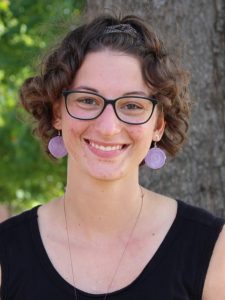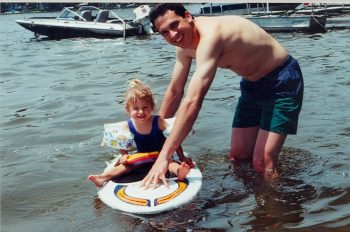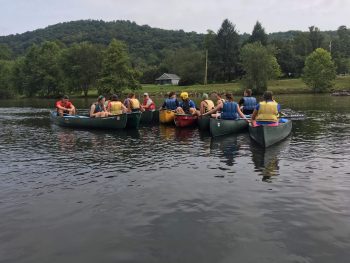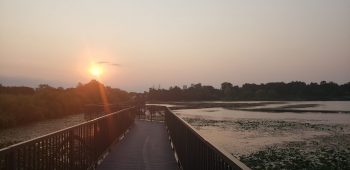 By Madeline Troyer
By Madeline Troyer
I have been loving Minnesota lake culture. During the winter months, the lakes have a unique appeal. But it’s really warm weather that draws me to them. I grew up going to my great grandpa’s lake cottage in Michigan where I have fond memories of family gathering around plates full of summer food, tussling with my cousins in the water, and enjoying time spent on anything that floated. Lakes have always been a part of my summer and so gathering around them fills my soul.

Madeline and her dad enjoy a summer at her great-grandpa’s lake cottage
I enjoy biking through the city and passing different lakes. Each of them has unique qualities, but all of them have people enjoying their experience, albeit in different ways.
“I enjoy biking through the city and passing different lakes.”
Two weekends ago I went to Lake Nokomis in South Minneapolis. People were out on paddleboards, kayaks, and canoes; people were fishing, playing games, and picnicking; and on the beach people of all ages were playing in the sand, cooling off in the water, or just enjoying the company of others. While it was shocking to see so many people unmasked in one place, it did allow me to see what each of us had in common – joy.
PART OF MY WORK involves talking to congregations about watersheds. As we share our stories, I have learned that each of us has a water narrative and everyone’s face seems to light up with joy when remembering how we are connected to water.

In Minnesota, people often connect with others through paddling and water.
Water is also a part of our faith story through the act of baptism. Martin Luther says that “holy baptism was purchased for us through this same blood, which [Christ] shed for us and with which he paid for sin. This blood and its merit and power he put into baptism, in order that in baptism we might receive it. For whenever a person receives baptism in faith, this is the same as if he were visibly washed and cleansed of sin with the blood of Christ.” (Luther’s Works 51:325).
This same cleansing, life-giving water of baptism is the water we pollute with our oil, trash, herbicides, salt, yard clippings, etc. Each of us have the ability to take action to keep our waters clean for generations to come as we deepen our vocation as disciples of Christ through caring for creation.
“Water is also a part of our faith story through the act of baptism.”
Individually you can commit to not using salt in the winter or using chemicals in your yard or in your house; you can plant native species and adopt a storm drain to take care of. A church or other group can work to plant a rain garden, install permeable pavers, or become a certified smart salter.

Madeline can often be found at her favorite Minneapolis Lake.
We can all advocate for larger change by contacting our legislators about policies to protect our water, such as removing lead pipes or planning about how we handle manure. (Both of these issues that are currently being discussed by elected officials.)
You can also join synod leaders in July for a joint ecumenical service as we come together to share stories and learn how others are taking action to care for the waters that connect us and bring us so much joy. More details will be coming soon. Feel free to contact me at m.troyer@mpls-synod.org if you want to be added to the registration list.

